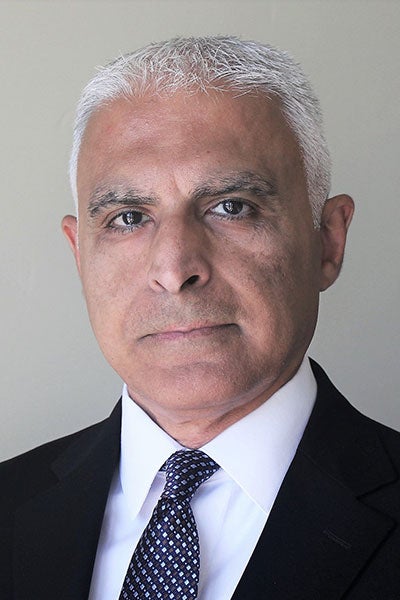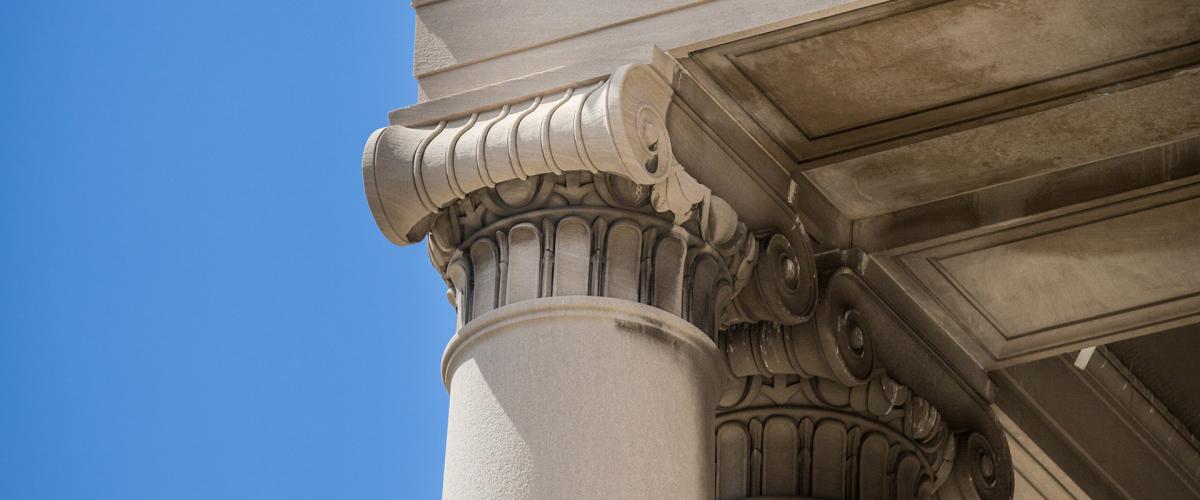Alumnus cements Case Western Reserve’s commitment to interdisciplinary telecommunications research
Chance meeting led Khatibi to the United States—and down the path to helping develop the underlying technology powering today’s 5G cellular networks

Farrokh Khatibi, PhD (CIT ’81; GRS ’84, ’88, electrical engineering and applied physics), almost never left Iran. But barely three weeks after a chance meeting with a Case Western Reserve University alumnus in Khatibi’s home country, Khatibi found himself in the United States for the first time in his life, attending undergraduate classes at Case Institute of Technology.
Fast forward nearly five decades, three degrees, dozens of patents, and the development of the technology that launched 3G, 4G and 5G networks: Today, the distinguished triple alumnus of Case Western Reserve is making a commitment to establish The Dr. Farrokh Khatibi Professorship in the university’s Department of Electrical, Computer and Systems Engineering. The position is intended to head up transformative research initiatives that focus on next-generation telecommunications technologies.
“Farrokh has been at the forefront of developing some of the most important advanced communications technology of the past four decades, and we’re extremely grateful that he wants to help ensure that his alma mater continues to produce the next generation of world-class engineers,” Case Western Reserve President Eric W. Kaler said. “Farrokh and I have talked about the excitement around the opening of the Interdisciplinary Science and Engineering Building (ISEB) next year, and this professorship will be critically important to much of the work that will go on there.”
Khatibi’s love for electrical engineering started at the age of 12, when he began taking any electronic device he could find and disassembling it to see how the electronics worked. While figuring out the circuitry was never an issue, the mechanics of reassembling the device were another matter, much to the consternation of his father, who also was an electrical engineer. After years of tinkering, Khatibi embarked on his first trip to the U.S. in 1978, and he wound up studying and teaching at Case Western Reserve for more than a decade.
“My time at Case Western Reserve helped shape the person I am today and provided the foundation for my career,” Khatibi said. “The technology underlying wireless communications touches nearly every discipline, and I felt that endowing this professorship at this time was a critical component to the university developing a strong advanced communication program.”
After completing his doctoral dissertation on leveraging artificial intelligence to enhance online education, Khatibi joined Qualcomm Incorporated in 1990 to help develop a new cellular technology using Code Division Multiple Access, which evolved from 3G to 4G and eventually 5G. Before his retirement in 2023, he played an integral part of dozens of patents issued to Qualcomm over the past four decades.
“Farrokh’s gift is a game-changer for the school and couldn’t come at a better time with the opening of the ISEB on the horizon,” Case School of Engineering Interim Dean Christian A. Zorman said. “His affinity for his alma mater and his passion for interdisciplinary research are evidenced in this gift, and we can’t wait to open this state-of-the-art facility that will facilitate the overlapping of many different disciplines.”
Khatibi was actively involved in the development of Wireless Emergency Alert standards and has led working groups of the FCC Communications Security, Reliability and Interoperability Emergency Alerting Council from 2015 until his retirement in 2023. He has received numerous awards from the International Telecommunication Union, the Alliance for Telecommunications Industry Solutions and other organizations. He is a lifetime senior member of the Institute of Electrical and Electronics Engineers.
“Case was a great fit for me personally and academically,” Khatibi said. “I had professors who not only challenged me, but also went to bat for me to be able to teach undergraduate courses while I was in the master's and PhD programs. I thoroughly enjoyed my time on campus, and I feel like now is the time to return the favor.”
A national search for the inaugural Dr. Farrokh Khatibi Professor is currently underway.




